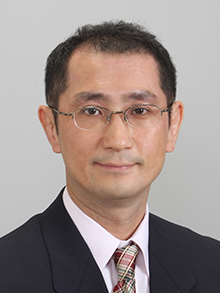- HOME

- Greeting
Greeting

Genome editing is a technology that alters the properties of cells and organisms by modifying targeted genes at will. In the 21st century, when the genome sequences of many organisms have been decoded, there are great expectations that this technology will contribute to solving the food crisis facing mankind and realizing a healthy and long-lived society through its use in agriculture, forestry, fisheries, and gene therapy.
The Japanese Society for Genome Editing was established in 2016 to exchange information on genome editing-related research, conduct research and development of fundamental technologies related to genome editing, and contribute to the development of this technology, its return to society, and human resource development. Since its inception, the annual conference has been held to provide a forum for research presentations and information exchange for members and non-members alike. Although there was a time when the conference was only held online, the importance of on-site, face-to-face meetings has been reaffirmed.
The 9th Annual Meeting will be held at the Osaka Central Public Hall from June 17 to 19, 2024, and will provide a venue for researchers, engineers, students, and related companies from Japan and abroad in the field of genome editing to gather, share information, and exchange ideas. In particular, student members will be admitted free of charge to foster young people who will be responsible for the future of genome editing. In the public lecture (free of charge), lectures will be given mainly to high school students on the basics, present, and future of genome editing.
There are many pharmaceutical and biotech companies in the Kansai region, and we hope that this conference will provide an opportunity to create new business opportunities. Osaka will host the World Expo in 2025. We hope that this convention will help Osaka disseminate the results of genome editing research that will pave the way for the future of mankind.
President
Masahito Ikawa
Research Institute for Microbial Diseases, Osaka University





